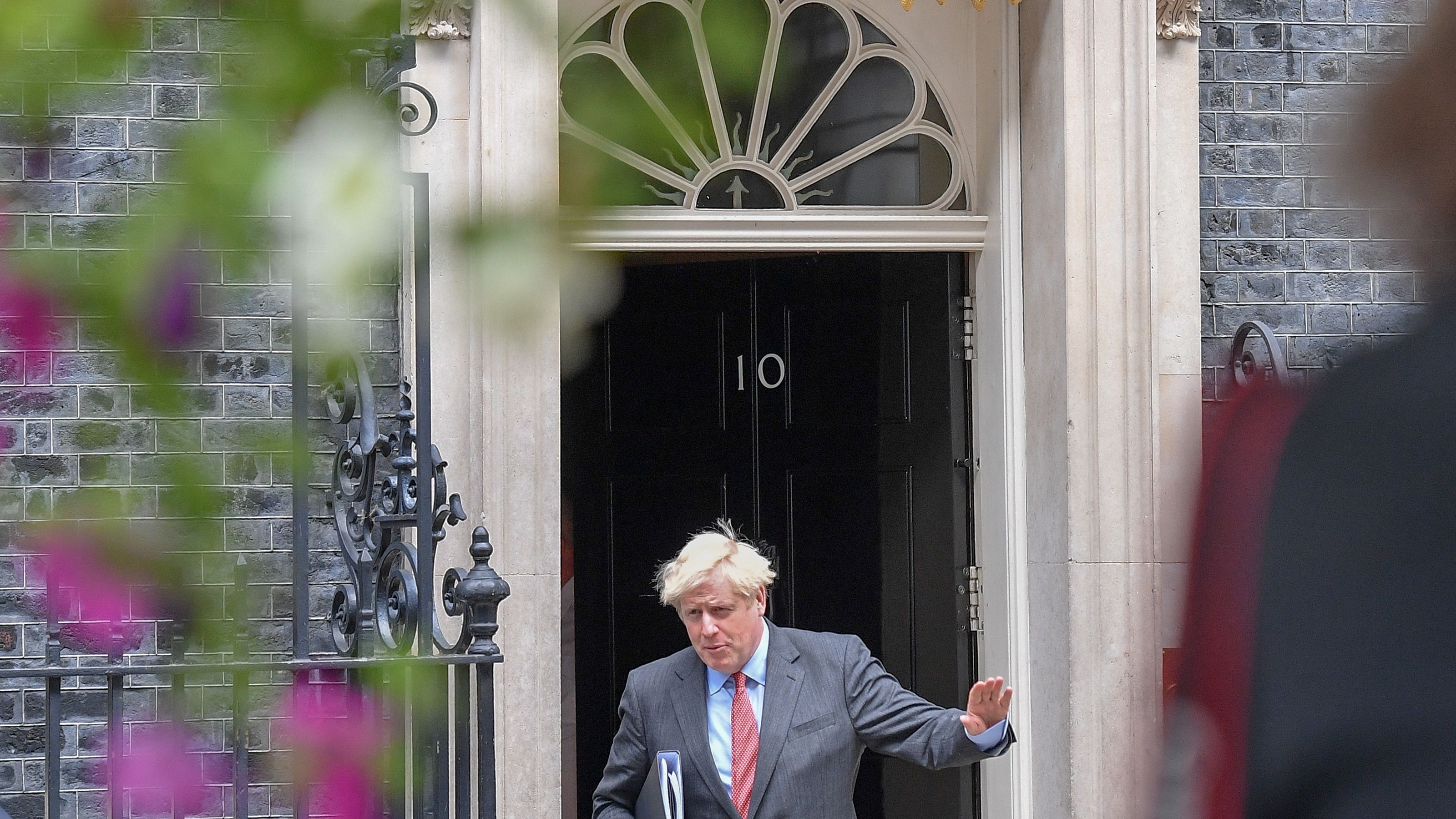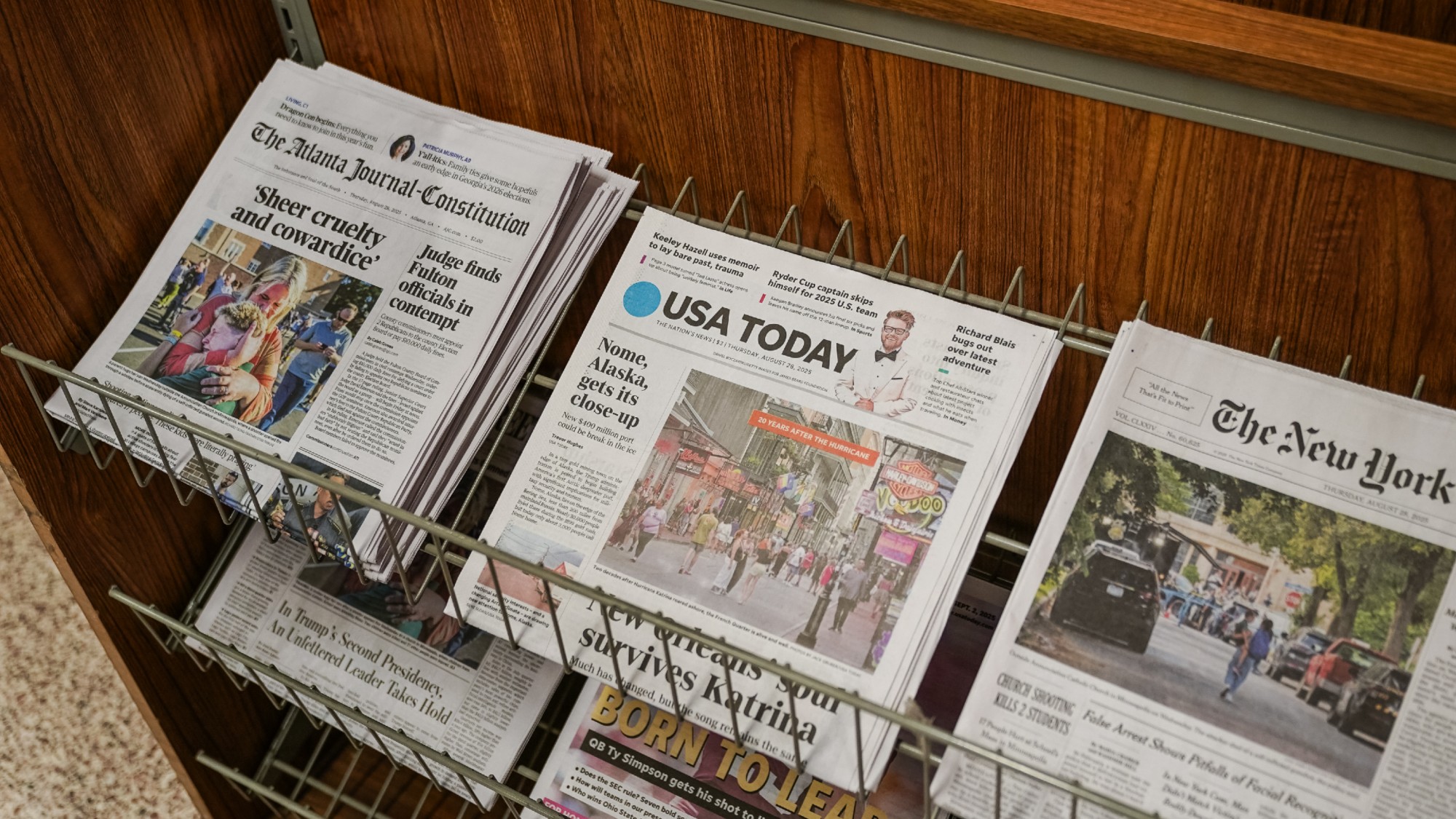Why everybody’s talking about the threat of a second national lockdown
Foreign secretary warns that stronger restrictions are still in government’s ‘arsenal’

A free daily email with the biggest news stories of the day – and the best features from TheWeek.com
You are now subscribed
Your newsletter sign-up was successful
Less than a month ago, Britons were warned to “go back to work or risk losing your job” as Boris Johnson called for a return to offices.
Today, Dominic Raab is predicting that the UK “could end up in a national lockdown” once again if the government’s latest social distancing measures fail to curb raising coronavirus infection rates.
The foreign secretary told Sky News that a second shutdown “is what we want to avoid” but remains in Downing Street’s “arsenal” of options - a description that tallies with his boss’ comments about another shutdown being akin to a “nuclear deterrent”.
The Week
Escape your echo chamber. Get the facts behind the news, plus analysis from multiple perspectives.

Sign up for The Week's Free Newsletters
From our morning news briefing to a weekly Good News Newsletter, get the best of The Week delivered directly to your inbox.
From our morning news briefing to a weekly Good News Newsletter, get the best of The Week delivered directly to your inbox.
But while the extreme measure is unpopular, Johnson is “walking a tightrope as he plots a route through the Covid crisis”, says The Telegraph’s associate editor Camilla Tominey.
‘A struggle humanity must win’
Almost 17 million people tuned in to watch a televised address last night in which the prime minister “urged the nation to summon discipline, resolve and a spirit of togetherness to meet a second wave of coronavirus this winter”, reports The Times.
Warning of “difficult months to come”, Johnson said that “he could not rule out a second national lockdown if people failed to follow the tougher restrictions he had earlier announced in the Commons”, the newspaper continues.
A free daily email with the biggest news stories of the day – and the best features from TheWeek.com
That message was echoed this morning by Raab, who in a “stark warning to the public” cautioned that if the new coronavirus rules are not followed, Britain could face a second lockdown by Christmas, says The Telegraph.
Another 4,926 people in the UK tested positive for Covid-19 yesterday, the highest daily figure since 7 May. A further 37 people have also died within 28 days of testing positive - the highest tally of fatalities in a single day since 14 July.
It’s beginning to look a lot like lockdown
Back in July, Johnson predicted a “significant return to normality” by Christmas - a comment he may come to rue if he fails to deliver lower infection rates ahead of the festive season.
Earlier this month, Chief Medical Officer Chris Whitty warned that the UK’s trajectory of positive cases was “extremely similar” to that of France and Spain, two of the European countries worst-affected by the second wave of Covid cases.
Whitty hammered home that point this week, at a televised press conference, where the country was told to be “prepared for significant restrictions for the next six months, over the winter period when the virus can be expected to flourish”, The Guardian reports.
Raab’s subsequent intervention came as “critics blasted the government” for failing to take “responsibility for the spike in cases despite ministers presiding over numerous chaotic U-turns and policy changes in recent months”, says the Daily Mail.
And with discontent already spreading among Tory MPs - who according to the newspaper, are describing the government’s response as a “total shambles” - Johnson will be anxious to avoid becoming the PM who stole Christmas.
Covid curbing growth
Doves in Johnson’s cabinet have lost the immediate battle over lockdown, says Politico’s Alex Wickham, who reports that “several Cabinet ministers, MPs, devolved leaders and the mayor of London” have asked “whether his latest restrictions go far enough”.
After “two days locked in meetings” with ministers and scientists, the PM instead “sided more with the hawks” in government “who wanted to protect the economy and the hospitality industry from a wider crackdown”, Wickham writes.
But the financial impact of further restrictions is already being felt, with the UK’s recovery from lockdown No.1 “losing momentum even before the announcement of new restrictions to control the spread of the virus”, says The Guardian’s economic editor Larry Elliott.
“The closely watched monthly estimates from Cips/Markit found the level of activity at its lowest since June,” Elliott continues, with “the outlook for business at its weakest since May and jobs being shed at a rapid rate”.
So what happens next?
Johnson remains stuck between a rock and a hard place.
As The Telegraph’s Tominey notes, the PM “faces backlash” whatever he does, either “from those who think he has gone too far – or those who think he has not gone far enough”.
“Like the rest of the country, ministers are hoping Thursday’s launch of the new NHS tracing app will help avoid further curbs on people’s civil liberties,” she says. But the cabinet, and the country, remains divided over what steps to take - “hence the need to constantly occupy the middle ground”.
Johnson’s latest list of restrictions come into effect tomorrow. But sources around No. 10 tell Politico’s Wickham that they may be just the “first decisive step” ahead of more measures.
Joe Evans is the world news editor at TheWeek.co.uk. He joined the team in 2019 and held roles including deputy news editor and acting news editor before moving into his current position in early 2021. He is a regular panellist on The Week Unwrapped podcast, discussing politics and foreign affairs.
Before joining The Week, he worked as a freelance journalist covering the UK and Ireland for German newspapers and magazines. A series of features on Brexit and the Irish border got him nominated for the Hostwriter Prize in 2019. Prior to settling down in London, he lived and worked in Cambodia, where he ran communications for a non-governmental organisation and worked as a journalist covering Southeast Asia. He has a master’s degree in journalism from City, University of London, and before that studied English Literature at the University of Manchester.
-
 Why is the Trump administration talking about ‘Western civilization’?
Why is the Trump administration talking about ‘Western civilization’?Talking Points Rubio says Europe, US bonded by religion and ancestry
-
 Quentin Deranque: a student’s death energizes the French far right
Quentin Deranque: a student’s death energizes the French far rightIN THE SPOTLIGHT Reactions to the violent killing of an ultraconservative activist offer a glimpse at the culture wars roiling France ahead of next year’s elections
-
 Secured vs. unsecured loans: how do they differ and which is better?
Secured vs. unsecured loans: how do they differ and which is better?the explainer They are distinguished by the level of risk and the inclusion of collateral
-
 How corrupt is the UK?
How corrupt is the UK?The Explainer Decline in standards ‘risks becoming a defining feature of our political culture’ as Britain falls to lowest ever score on global index
-
 The high street: Britain’s next political battleground?
The high street: Britain’s next political battleground?In the Spotlight Mass closure of shops and influx of organised crime are fuelling voter anger, and offer an opening for Reform UK
-
 ‘This is a structural weakening of elder protections’
‘This is a structural weakening of elder protections’Instant Opinion Opinion, comment and editorials of the day
-
 ‘Journalism is on notice’
‘Journalism is on notice’Instant Opinion Opinion, comment and editorials of the day
-
 ‘The point here is not to be anti-tech but to rebalance a dynamic’
‘The point here is not to be anti-tech but to rebalance a dynamic’Instant Opinion Opinion, comment and editorials of the day
-
 ‘What a corrective to such nonsense’
‘What a corrective to such nonsense’Instant Opinion Opinion, comment and editorials of the day
-
 Is a Reform-Tory pact becoming more likely?
Is a Reform-Tory pact becoming more likely?Today’s Big Question Nigel Farage’s party is ahead in the polls but still falls well short of a Commons majority, while Conservatives are still losing MPs to Reform
-
 Asylum hotels: everything you need to know
Asylum hotels: everything you need to knowThe Explainer Using hotels to house asylum seekers has proved extremely unpopular. Why, and what can the government do about it?